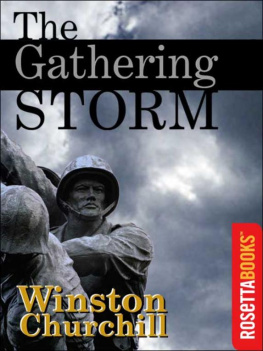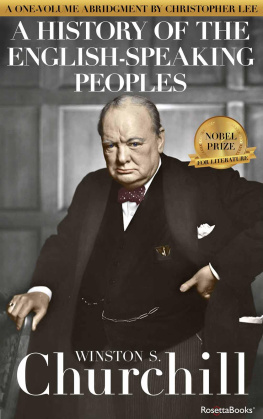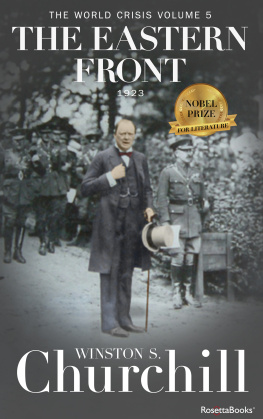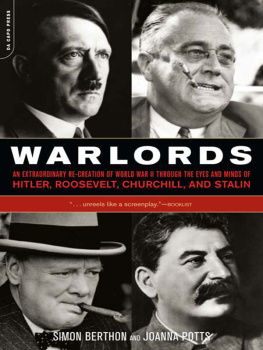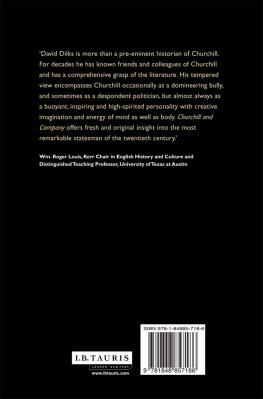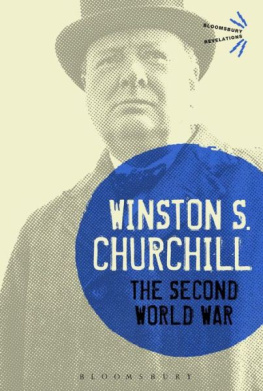The Second
World War
TITLES IN THE BLOOMSBURY REVELATIONS SERIES
Aesthetic Theory, Theodor W. Adorno
Being and Event, Alain Badiou
On Religion, Karl Barth
The Language of Fashion, Roland Barthes
The Intelligence of Evil, Jean Baudrillard
I and Thou, Martin Buber
Never Give In!, Winston Churchill
The Boer War, Winston Churchill
The Second World War, Winston Churchill
In Defence of Politics, Bernard Crick
Intensive Science and Virtual Philosophy, Manuel DeLanda
A Thousand Plateaus, Gilles Deleuze and Flix Guattari
Anti-Oedipus, Gilles Deleuze and Flix Guattari
Cinema I, Gilles Deleuze
Cinema II, Gilles Deleuze
Taking Rights Seriously, Ronald Dworkin
Discourse on Free Will, Desiderius Erasmus and Martin Luther
Education for Critical Consciousness, Paulo Freire
Marxs Concept of Man, Erich Fromm and Karl Marx
To Have or To Be?, Erich Fromm
Truth and Method, Hans Georg Gadamer
All Men Are Brothers, Mohandas K. Gandhi
Violence and the Sacred, Rene Girard
The Essence of Truth, Martin Heidegger
The Eclipse of Reason, Max Horkheimer
The Language of the Third Reich, Victor Klemperer
Rhythmanalysis, Henri Lefebvre
After Virtue, Alasdair Maclntyreq
Time for Revolution, Antonio Negri
Politics of Aesthetics, Jacques Ranciere
Course in General Linguistics, Ferdinand de Saussure
An Actor Prepares, Constantin Stanislavski
Building A Character, Constantin Stanislavski
Creating A Role, Constantin Stanislavski
Interrogating the Real, Slavoj iek
Some titles are not available in North America.
The Second
World War
Abridged Edition
With an Epilogue on the Years
1945 to 1957
Winston S. Churchill

Moral of the Work
IN WAR: RESOLUTION
IN DEFEAT: DEFIANCE
IN VICTORY: MAGNANIMITY
IN PEACE: GOODWILL
NOTE
The Second World War is an abridgement by Denis Kelly of the following volumes composed by Sir Winston Churchill:
The Gathering Storm (1919May 10, 1940)
Their Finest Hour (1940)
The Grand Alliance (1941)
The Hinge of Fate (1942July 1943)
Closing the Ring (July 1943June 6, 1944)
Triumph and Tragedy (June 6, 1944July 25, 1945)
Space compelled the omission of many passages from these volumes, and sequence and proportion demanded a considerable re-arrangement of the remainder of the text. Apart, however, from some linking sentences which are insignificant in number, this abridgement is entirely in Sir Winstons own words.
The Epilogue, now published in book form for the first time, was written by Sir Winston at the beginning of 1957. It is unabridged and reviews the period since his relinquishment of the office of Prime Minister of Great Britain on July 26, 1945.
ACKNOWLEDGEMENTS
I must record my thanks to Lieutenant-General Sir Henry Pownall, Commodore G. R. G. Allen, and Mr. F. W. Deakin, Warden of St. Anthonys College, Oxford, for reading and criticising the early drafts of this abridgement. I, however, bear the sole responsibility for all defects and deficiencies in the present version.
I am also much obliged to Mr. C. A. Butler for correcting the proofs, to my publishers on both sides of the Atlantic for their customary generosity and patience, and to many others who have given me their help, encouragement, and advice.
D. K.
15 December, 1958.
EXTRACT FROM THE PREFACE TO THE GATHERING STORM
I MUST regard these volumes as a continuation of the story of the First World War which I set out in The World Crisis, The Eastern Front, and The Aftermath. Together they cover an account of another Thirty Years War.
I have followed, as in previous volumes, the method of Defoes Memoirs of a Cavalier, as far as I am able, in which the author hangs the chronicle and discussion of great military and political events upon the thread of the personal experiences of an individual. I am perhaps the only man who has passed through both the two supreme cataclysms of recorded history in high executive office. Whereas however in the First World War I filled responsible but subordinate posts, I was in this second struggle with Germany for more than five years the head of His Majestys Government. I write therefore from a different standpoint and with more authority than was possible in my earlier books. I do not describe it as history, for that belongs to another generation. But I claim with confidence that it is a contribution to history which will be of service to the future.
These thirty years of action and advocacy comprise and express my life-effort, and I am content to be judged upon them. I have adhered to my rule of never criticising any measure of war or policy after the event unless I had before expressed publicly or formally my opinion or warning about it. Indeed in the afterlight I have softened many of the severities of contemporary controversy. It has given me pain to record these disagreements with so many men whom I liked or respected; but it would be wrong not to lay the lessons of the past before the future. Let no one look down on those honourable, well-meaning men whose actions are chronicled in these pages without searching his own heart, reviewing his own discharge of public duty, and applying the lessons of the past to his future conduct.
It must not be supposed that I expect everybody to agree with what I say, still less that I only write what will be popular. I give my testimony according to the lights I follow. Every possible care has been taken to verify the facts; but much is constantly coming to light from the disclosure of captured documents or other revelations which may present a new aspect to the conclusions which I have drawn.
One day President Roosevelt told me that he was asking publicly for suggestions about what the war should be called. I said at once the Unnecessary War. There never was a war more easy to stop than that which has just wrecked what was left of the world from the previous struggle. The human tragedy reaches its climax in the fact that after all the exertions and sacrifices of hundreds of millions of people and the victories of the Righteous Cause we have still not found Peace or Security, and that we lie in the grip of even worse perils than those we have surmounted. It is my earnest hope that pondering upon the past may give guidance in days to come, enable a new generation to repair some of the errors of former years, and thus govern, in accordance with the needs and glory of man, the awful unfolding scene of the future.
WINSTON SPENCER CHURCHILL
Chartwell,
Westerham,
Kent
March 1948
BOOK I
MILESTONES TO DISASTER
1919May 10, 1940
BOOK II
ALONE
May 10, 1940June 22, 1941
BOOK III
THE GRAND ALLIANCE
Sunday, December 7, 1941, and onwards
BOOK IV
TRIUMPH AND TRAGEDY: 19431945
EPILOGUE
19451957
Next page

